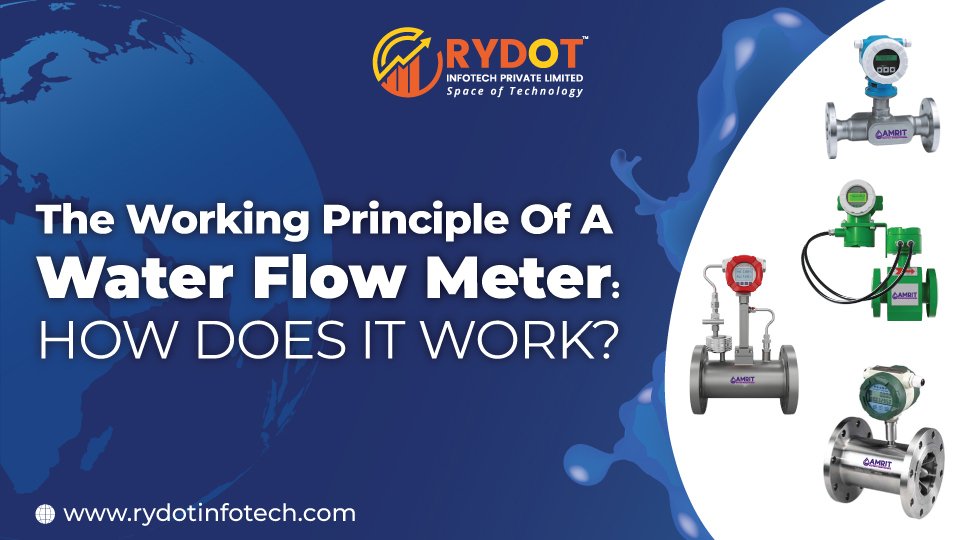![]()
What is water flow meter?
Water flow meters measure the flow of water. There are a number of types of water flow meters, each of which suits a specific purpose. Modern electromagnetic flow meters are comprised of both a transmitter and a sensor. The transmitter produces an electromagnetic field, which the sensor uses to measure the flow of water. They are also used to monitor the flow of water in pipelines and to calculate the flow rate of water tank. In this blog post, we will take a look at the working principle of a water flow meter and the primary types of water flow meters: Ultrasonic flow meter, Magnetic flow meter, Vortex flow meter and Mechanical flow meter.
Working Principle of Water Flow Meter
A water flow meter is a device used to measures the amount and rate of water flowing through a pipe. In this system, the water velocity is sensed and the amount of water that has passed through it is calculated using this information. The working principle of water flow meters is based on the Bernoulli’s principle – when a fluid travels through a pipe with increasing diameter, its pressure decreases. A water flow meter estimates this pressure difference across two points in the system and then calculates the rate of flow between them. It can also be used to calculate total volume of liquid passed through it over a certain period of time. water flow meters are vital tools for monitoring and managing water usage in various industries and processes.
4 Types of Water Flow Meters
1. Ultrasonic Flow Meter
It is possible to determine the velocity of a liquid or gas flowing through a pipe by using ultrasound principles. It is possible to use ultrasonic flowmeters to measure both clean and dirty liquids, as well as gas flows. The ultrasonic transducers measure the sound wave that travels through the pipe wall and is reflected back. Even when temperature, pressure or viscosity change, ultrasonic flowmeters can provide accurate readings. They also have a low level of maintenance can work with difficult liquids such as mud or slurry that other types of meters may not be able to accurately measure.
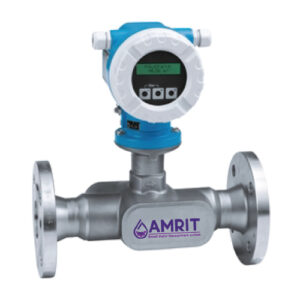
2. Magnetic Flowmeter
It is a type of flow meter that measures liquid or gas flow using a magnetic field. Meters consist of a sensing element that is placed in the path of a fluid and a processor that interprets its signal. Liquids and gases that are conducive can be measured by magnetic flow meters. When liquid or gas passes through the magnetic field, the magnetic field detects the flow. Magnetic field strength is proportional to the flow rate and is measured by the water flow sensor.
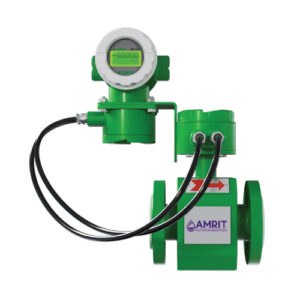
3. Vortex Flow Meter
Vortex Flow Meter technology is a measuring device used to evaluate the rate of water flow in pipes and canals. This type of flow meter is based on the Von Kármán principles of fluid dynamics and detects the pressure drop caused by a vortex-shedding phenomenon. It measures water flow accurately, even when there is significant turbulence in the flowing liquid. A vortex meter’s sensor tab flexes with every vortex that passes through, resulting in a frequency output that is inversely proportional to volumetric flow. The most common types of vortex flow meters are those that use a bluff body, a cylinder, or a shedder.
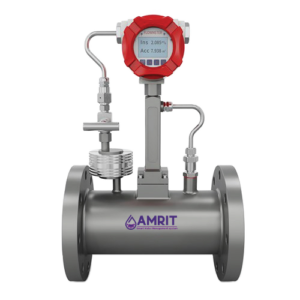
4. Mechanical / Turbine Flow Meters
Turbine flow meters works by calculating the fluid flow rate and converting it to a usable signal. They do this by using a rotating impeller that is placed in the fluid stream. As the fluid flows past the impeller, it causes the blades to spin. This spinning motion is then converted into an electrical signal that can be read by a flow meter. mechanical / turbine flow meters use a turbine to measure the flow of fluid in a pipeline. The turbine is mounted in the pipeline and is connected to a sensor. As fluid flows through the pipeline, it turns the turbine. The sensor measures the speed of the turbine and calculates the flow rate based on the known dimensions of the pipeline.
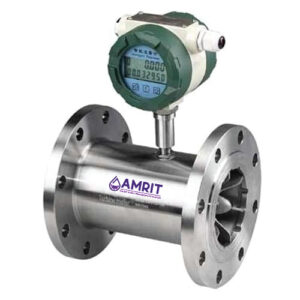
Application of Water Flow Meters
- Drinking Water
- Wastewater
- Agriculture
- Chemical and pharmaceutical industries
- Food & beverage industry
- Oil and gas
- Ceramic industries
- Power generation; utility and chilled water industry
Conclusion:
Hence, in a nutshell, water flow meters are essential devices for a variety of applications, such as irrigation, water treatment, and hydraulic fracturing. a water flow meter is a very useful device and an integral part of any water system. It can help monitor the amount of water being used, thus reducing the risk of water wastage and ensuring that the system is running efficiently. By understanding the workings principle of a water flow meter, you can be sure to get accurate measurements and make better decisions about your water system.
With this knowledge in hand, you can now confidently install, maintain and use a water flow meter for all your needs with ease. So go ahead, invest in a good-quality water flow meter today – it’ll be worth it! If you are looking for IoT based Smart Water measurement & Quality Monitoring System, Get in touch with our IoT experts at info@rydotinfotech.com

